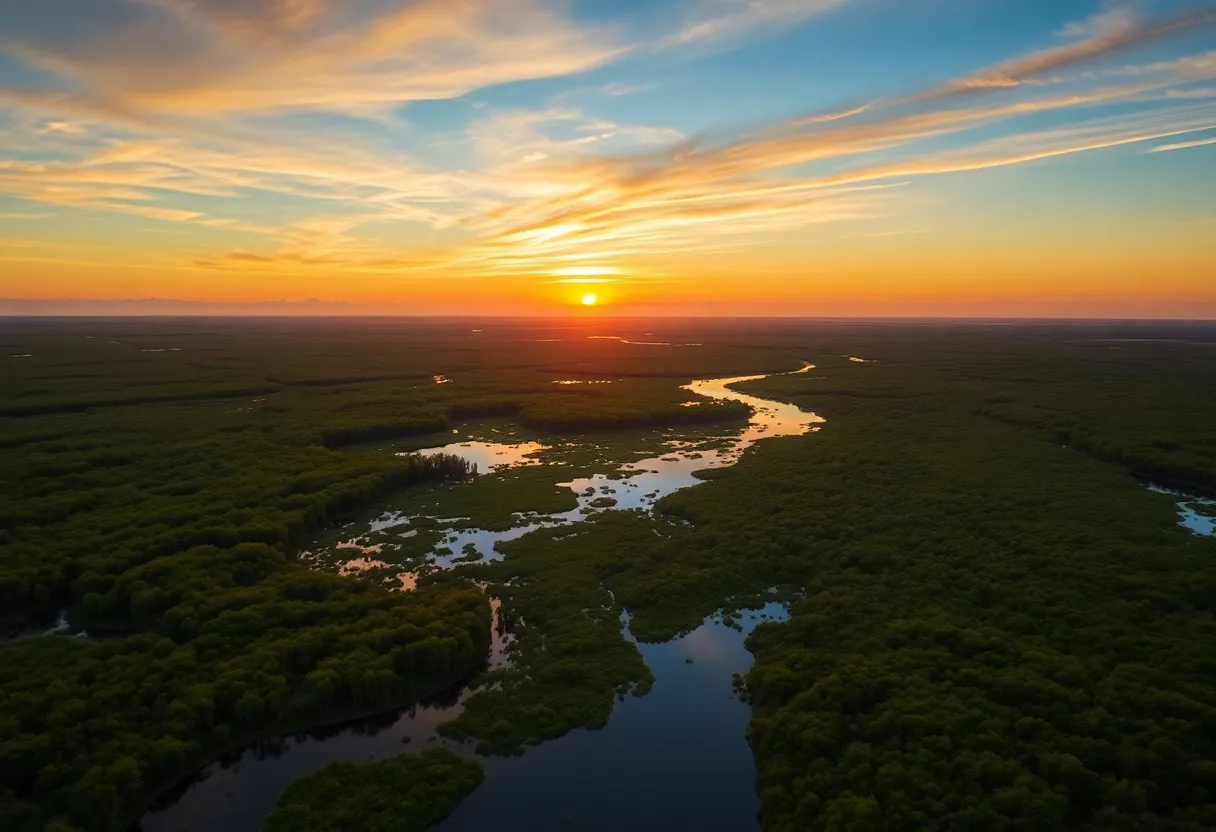News Summary
Governor Jeff Landry has appointed Michael Hare as the executive director of the Louisiana Coastal Protection and Restoration Authority (CPRA), succeeding Glen Ledet Jr. Hare, a political science graduate from LSU with extensive experience in environmental markets, aims to combat severe coastal land loss in Louisiana. His focus will be on key initiatives, including the Mid-Barataria Sediment Diversion project, to help preserve Louisiana’s wetlands amidst ongoing environmental challenges.
Baton Rouge — Governor Jeff Landry has announced the appointment of Michael Hare as the new executive director of the Louisiana Coastal Protection and Restoration Authority (CPRA). Hare takes over from Glen Ledet Jr., who has been reassigned to the Louisiana Department of Transportation and Development. This leadership change comes amid ongoing efforts to combat severe coastal land loss in the state.
Michael Hare holds a degree in political science from Louisiana State University (LSU), which he earned in 2002, and a master’s degree in foreign policy from American University in Washington, D.C., in 2004. In 2019, he returned to LSU to obtain a master’s degree in business administration. Before his recent appointment, Hare operated Wildhare Solutions, an environmental markets advising company based in Lafayette. His previous professional experience includes roles as the director of government affairs and business development at Resource Environmental Solutions and as a legislative assistant to former U.S. Representative Charles Boustany.
Hare’s expertise in environmental markets encompasses areas such as mitigation banking, water quality trading, and carbon credits, which are designed to incentivize environmental restoration projects. The governor expressed confidence in Hare’s experience and his dedication to addressing the challenges facing coastal Louisiana.
The CPRA oversees initiatives that focus on combating the significant land loss plaguing Louisiana, primarily caused by factors such as sea-level rise and subsidence. The state is losing coastal wetlands at an alarming rate of 25 to 35 square miles annually, threatening not only the environment but also the cultural and economic fabric of the region.
Hare has stressed the urgent need for action to preserve Louisiana’s unique culture and way of life as coastal challenges intensify. The state is home to approximately 40% of the United States’ coastal marshes, but significant land loss poses a continuous risk to its ecological and societal stability.
Among the few areas defying the trend of land loss is the Wax Lake Delta, which has been benefiting from sediment deposition from the Atchafalaya River. Alteration of the river’s flow by the U.S. Army Corps of Engineers in 1941 led to the formation of Wax Lake Delta. High sediment flows from various river diversions, particularly after significant rainfall events, are vital to coastal restoration efforts.
Another notable area is Neptune Pass, where one of North America’s largest new deltas is forming, thanks to substantial sediment flow following high levels in the Mississippi River in 2019. Recent studies indicate that between 56% and 79% of the sediment building up in the Quarantine Bay Delta originates from the Mississippi River.
One of the significant projects under the CPRA is the Mid-Barataria Sediment Diversion, which aims to channel sediment-rich water to restore the state’s coastal wetlands. However, the project has faced delays and raised concerns regarding its potential environmental impact on local fisheries. The complexities of restoring and maintaining wetland ecosystems highlight the ongoing need for scientific research to fully understand wetland dynamics and their crucial role in climate resilience.
As he assumes his new role, Michael Hare faces the formidable challenge of leading Louisiana’s coastal restoration and protection initiatives at a time when the stakes are higher than ever. With a clear focus on urgent action, he is expected to leverage his extensive experience to navigate the complexities of environmental restoration and make significant contributions to the preservation of Louisiana’s coastal landscapes.
Deeper Dive: News & Info About This Topic
- La Illuminator: New Leader for Coastal Restoration
- Google Search: Louisiana coastal restoration
- Science Friday: Wax Lake Delta
- Wikipedia: Wax Lake Delta
- NOLA: Coastal Land Loss Research
- Encyclopedia Britannica: Louisiana coastal land loss
- Biz New Orleans: Erosion and Sediment Flow
- Google Scholar: Louisiana coastal restoration
- NOLA: Louisiana’s Coast is Vanishing
- Google News: Louisiana wetlands

Author: STAFF HERE NEWORLEANS WRITER
The NEW ORLEANS STAFF WRITER represents the experienced team at HERENewOrleans.com, your go-to source for actionable local news and information in New Orleans, Orleans Parish, and beyond. Specializing in "news you can use," we cover essential topics like product reviews for personal and business needs, local business directories, politics, real estate trends, neighborhood insights, and state news affecting the area—with deep expertise drawn from years of dedicated reporting and strong community input, including local press releases and business updates. We deliver top reporting on high-value events such as French Quarter Festival, New Orleans Jazz & Heritage Festival, and Essence Music Festival. Our coverage extends to key organizations like the New Orleans Chamber of Commerce and Greater New Orleans, Inc., plus leading businesses in energy, healthcare, and education that power the local economy such as Entergy, Ochsner Health, and Tulane University. As part of the broader HERE network, including HEREShreveport.com, we provide comprehensive, credible insights into Louisiana's dynamic landscape.

